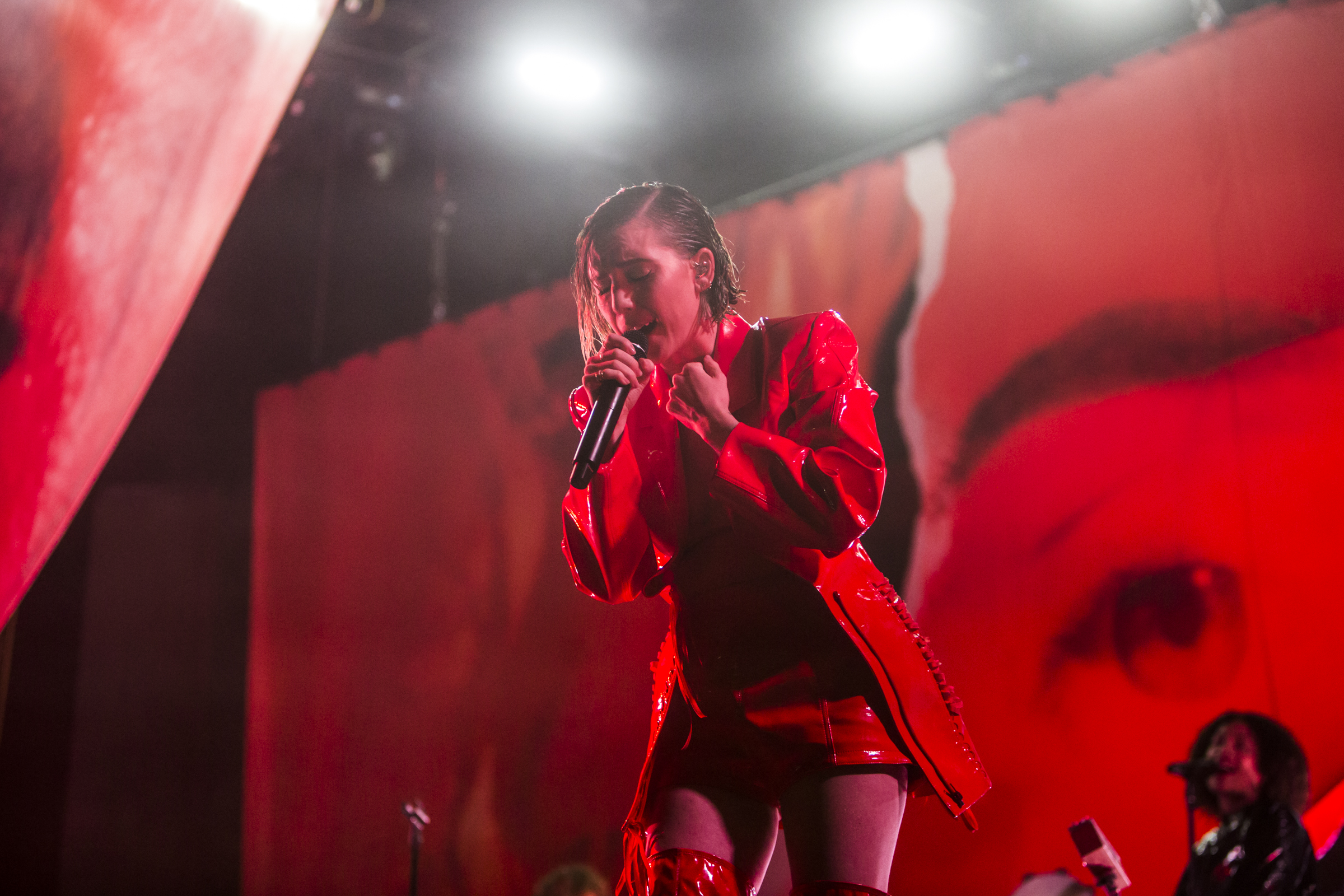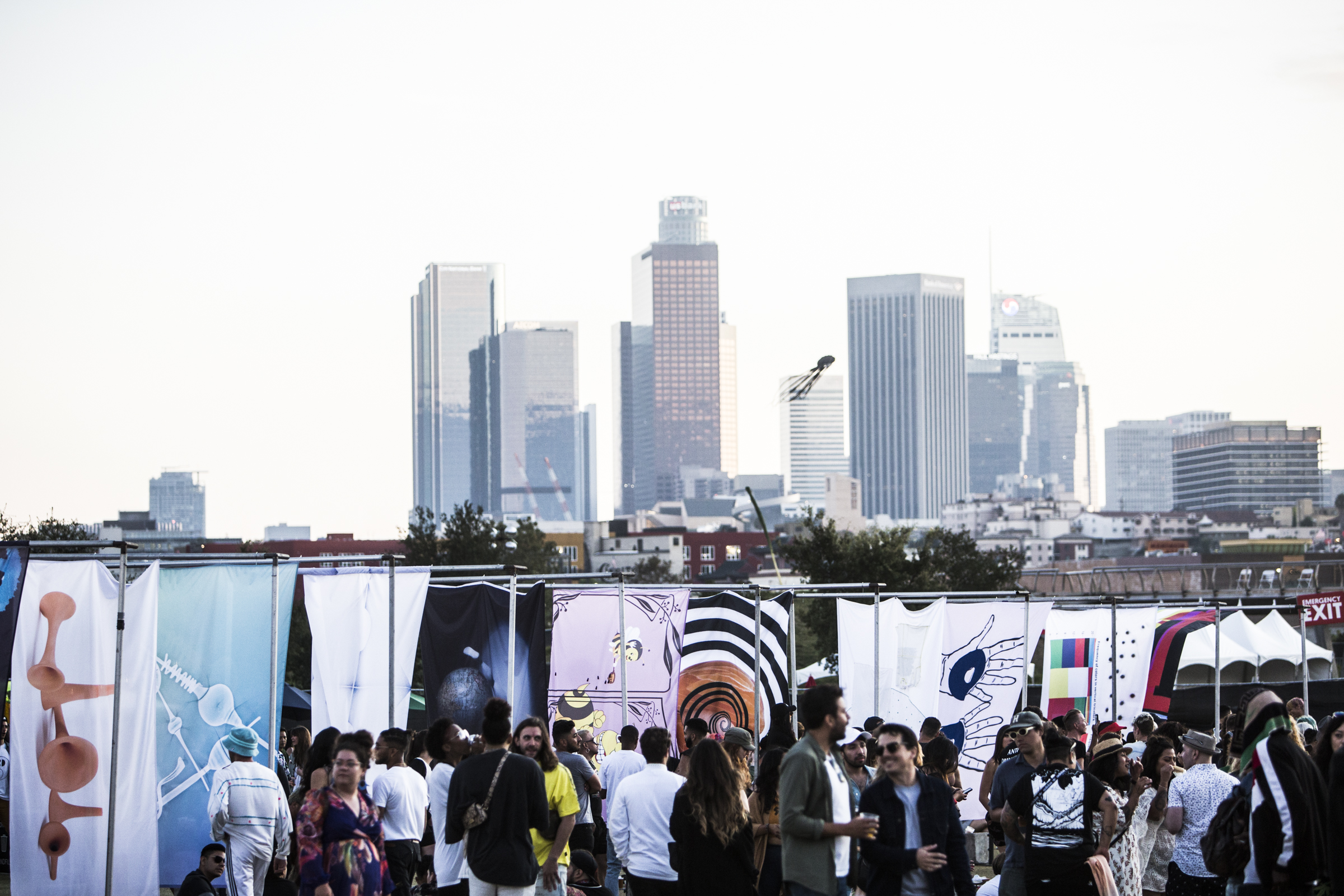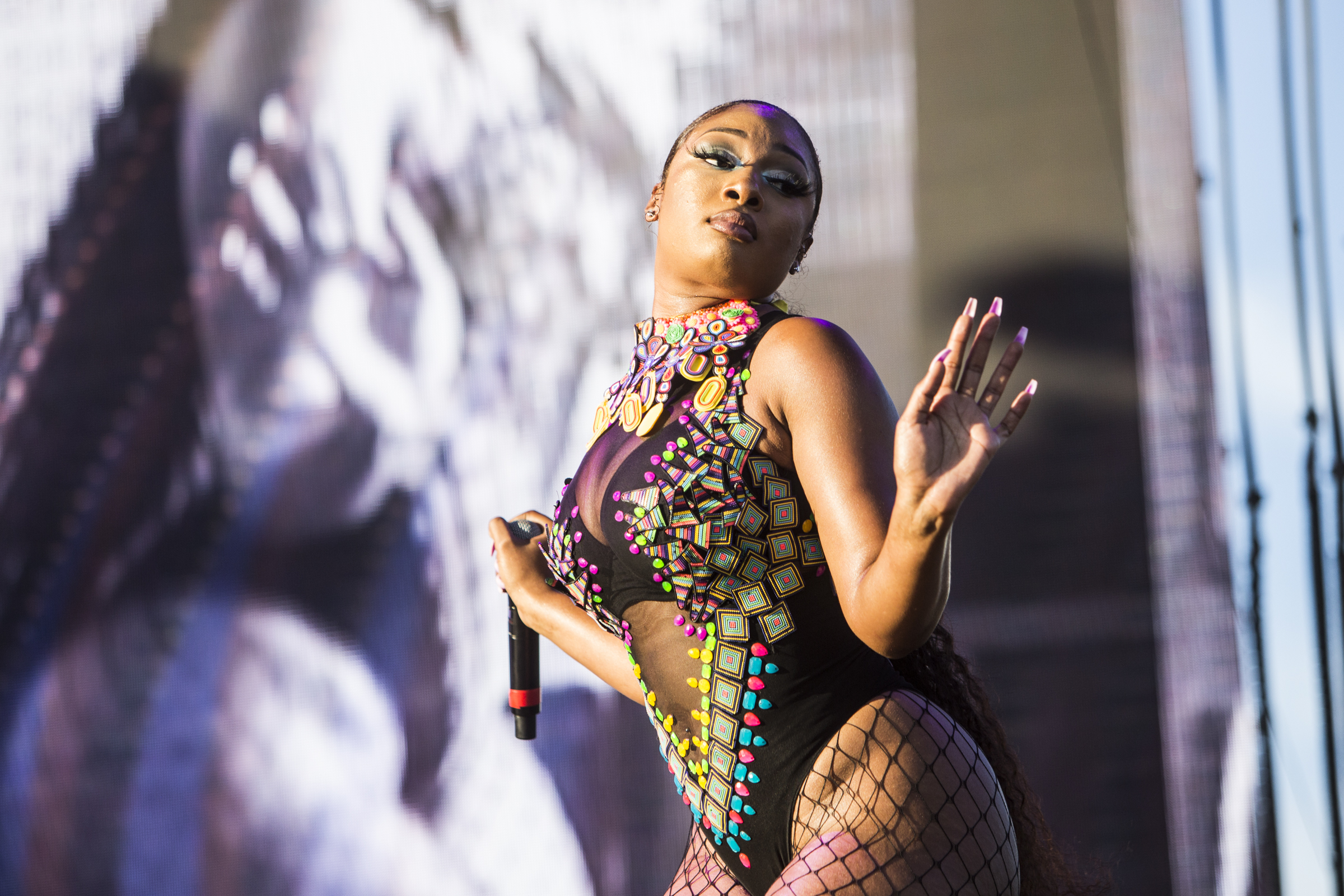
Most festivals are content to not mean anything. Or maybe that’s not fair, but the greater thing that most fests champion is a sense of community, a rite of passage for young people, and celebrating a collective love of music, food, and the outdoors. Sure, most will have environmental initiatives and voting registration and even artists using their platform to express important ideas about immigration or gun violence or global warming. But that’s not what the festivals are neccesarily about. The causes are simply an added bonus.
On Sunday in Los Angeles State Historic Park, the first-ever Yola Dia festival felt like the exact opposite of this. Sure, for the casual attendee, they might have only been there for the lineup. It was a strong bill that included headliner Lykke Li, who helped put together the festival and whose Yola mescal featured heavily, along with Cat Power, Megan Thee Stallion, Courtney Love, Sophie, and many more. In fact, some might not even notice at first glance that every artist on the bill identified as a woman. But the mission went even beyond that, as the festival proudly featured food, drinks, and art all created by women, making for an event that didn’t only push women to the front, it raised them up and shined a bright light on their vast contributions to the world.

Throughout the day, occasional speakers would take the stage, including labor activist Dolores Huerta, centering the festival’s message: the desire for a world of equal pay, where people would not be discriminated against for their race, gender, or sexual orientation, and where everyone’s voice is given the platform it deserves. These are things worth protesting for, worth yelling about, and on Sunday, Yola Dia reminded that they are things that are also worth celebrating. While there might be great distances to go before some of these issues become things of the past, creating an atmosphere of artists, businesses, influencers, and music fans of a like mind held a distinct power. More than two years ago just a mile or so away, these are the same Angelenos that marched together in the Women’s March. Yola Dia reminded that the mission is far from over, and that great things are still possible when we come together.
The festival’s ethos wasn’t just present in the booking and the on-stage discourse. A dollar from every ticket sold went to The Downtown Women’s Center in Los Angeles, an organization that helps women dealing with homelessness and its lasting effects. Running right through the center of the festival was a flag circle created by 26 different female artists that spoke to issues including women’s right to vote and the current border detainment crisis., taking the idea of a selfie station to new heights and adding more meaning to the usual Instagram fodder. The flags were auctioned off to benefit the ACLU.
With all of this in play, it was easy to think of the music playing second fiddle to the message, which would likely be okay with many of the performers. But individually, each represented an aspect of women’s empowerment that served closer examination. Perhaps none was more iconic than Courtney Love, playing a stripped-down set with a fresh backing band that included some of her best-known Hole songs, along with covers of Fleetwood Mac and Echo And The Bunnymen. The sexism that Love has endured in her 25-year-plus career is well documented, enough that female fans could surely empathize when she’d humorously chastize her male band or bemoan the downsides of her year-plus of sobriety. If anyone deserves adoration free of caveats at this point in their career, it’s Courtney Love.
Elsewhere was someone like Megan Thee Stallion bringing her “hot girl summer” ideology to the festival grounds. Sure, she didn’t play that song in her 14-minute set, but the message was loudly received that a woman’s ability to craft top-notch art is in no way a conflict with their ability to express their sexuality. Megan is great at letting these two things live in harmony, which might make some men, like Jermaine Dupri, uncomfortable. But along with an artist like Cardi B, Megan Thee Stallion is showing that it’s a new day from women in hip-hop, where there shouldn’t be any rules for how women express themselves, or how they turn heads in the rap game.

Cat Power couldn’t have been more of an opposite performer on the festival’s main stage, choosing to remain in the shadows for the majority of her set. And for someone who has often been uncomfortable with the spotlight on them, she rose to the occasion by making the stage and the moment work for herself, deftly mixing her renowned ability at a cover song with originals from her acclaimed 2018 album, Wanderer. Along with artists like local favorite Empress Of, who proudly showed off an outfit made by her mother, and Sophie, whose thumping electronic beats underscored a presence that represented the need to include trans women in any discussion about women’s empowerment and equality, the entertainment worked less in harmony with each other sonically, but more to provide crucial examples of the diverse art being made by women in the contemporary music scene.
Closing out the day was Lykke Li, an artist whose music has long served to demystify the complexity of the experience of being a woman. She can write anthems steeped in sadness, dancefloor-ready bangers coated in heartbreak, and clear-eyed odes to both birth and grief with an unmatched tenderness. As a live performer, she’s a force that needs to be witnessed, shedding any meekness that might be present in her off-stage persona in favor of emotionally-direct rock-star grandeur. When women are still a rarity to see closing out a festival day, Li proved more than capable as an anchor, rounding out a thesis that proved that women can excel at every aspect of a music festival. It was enough to let the fans leave the grounds entertained, but more so than most festivals of its ilk, they also could leave feeling fully inspired.






